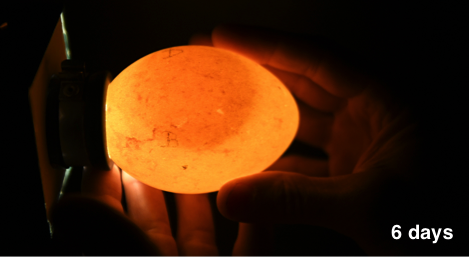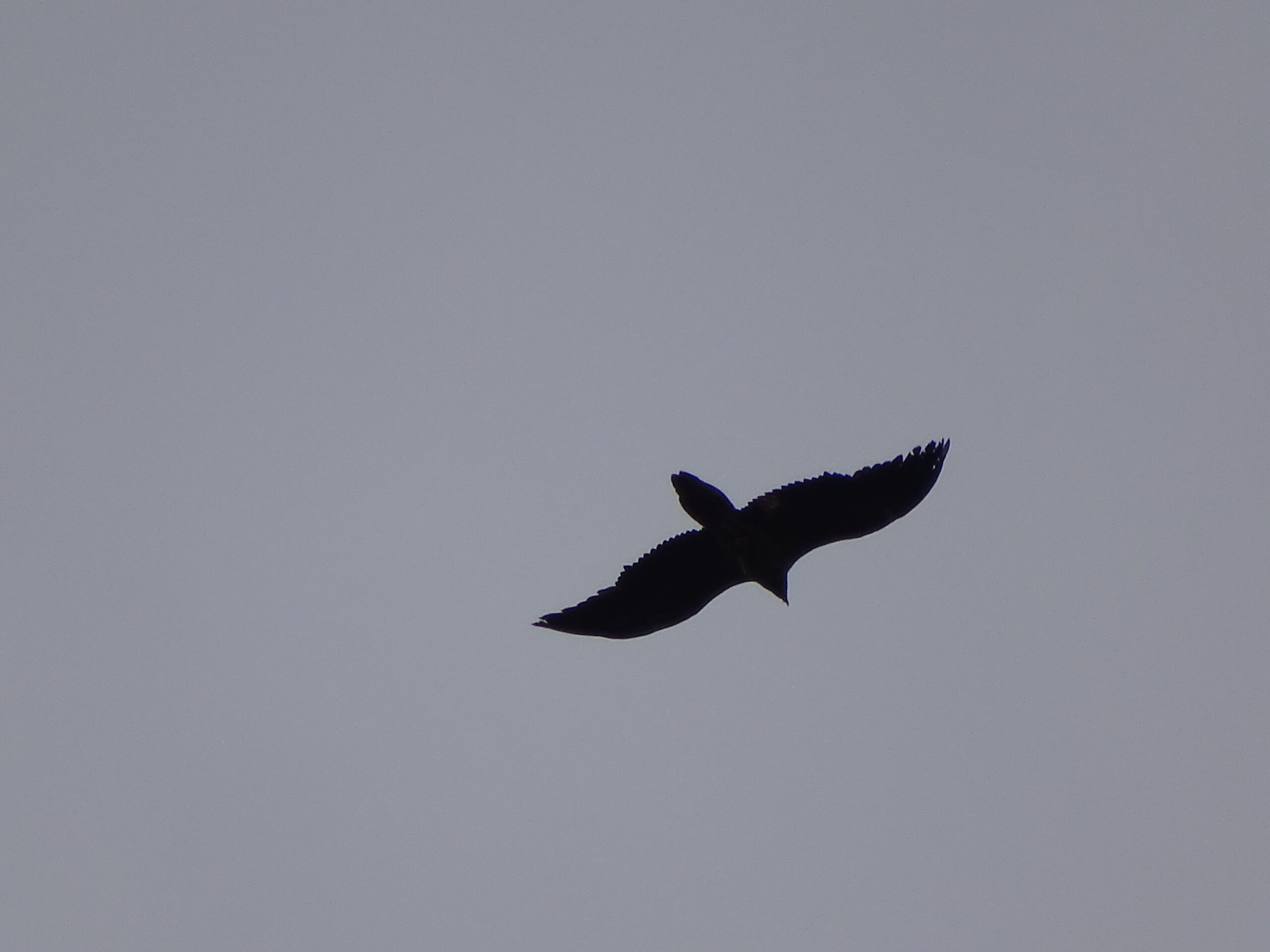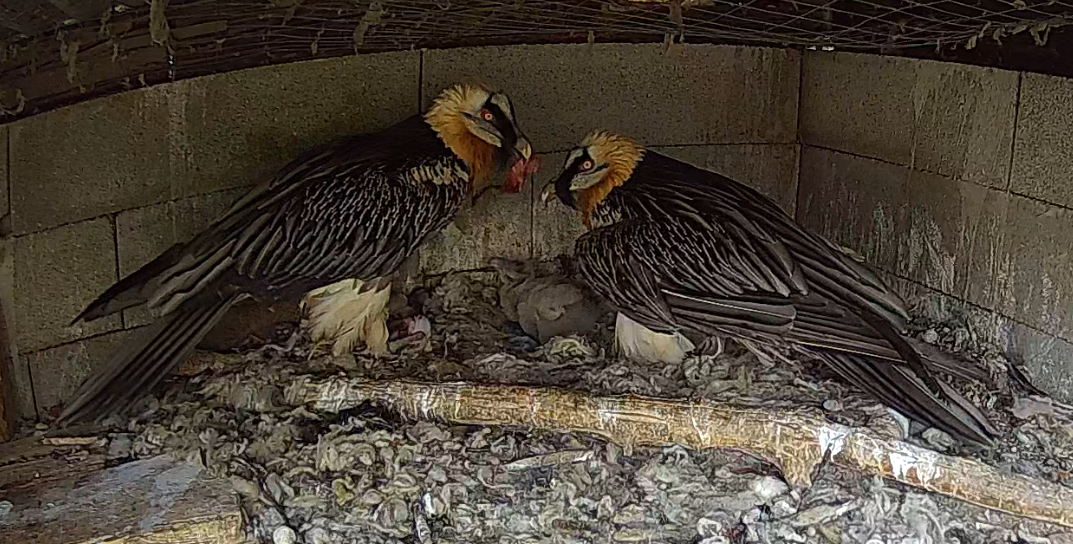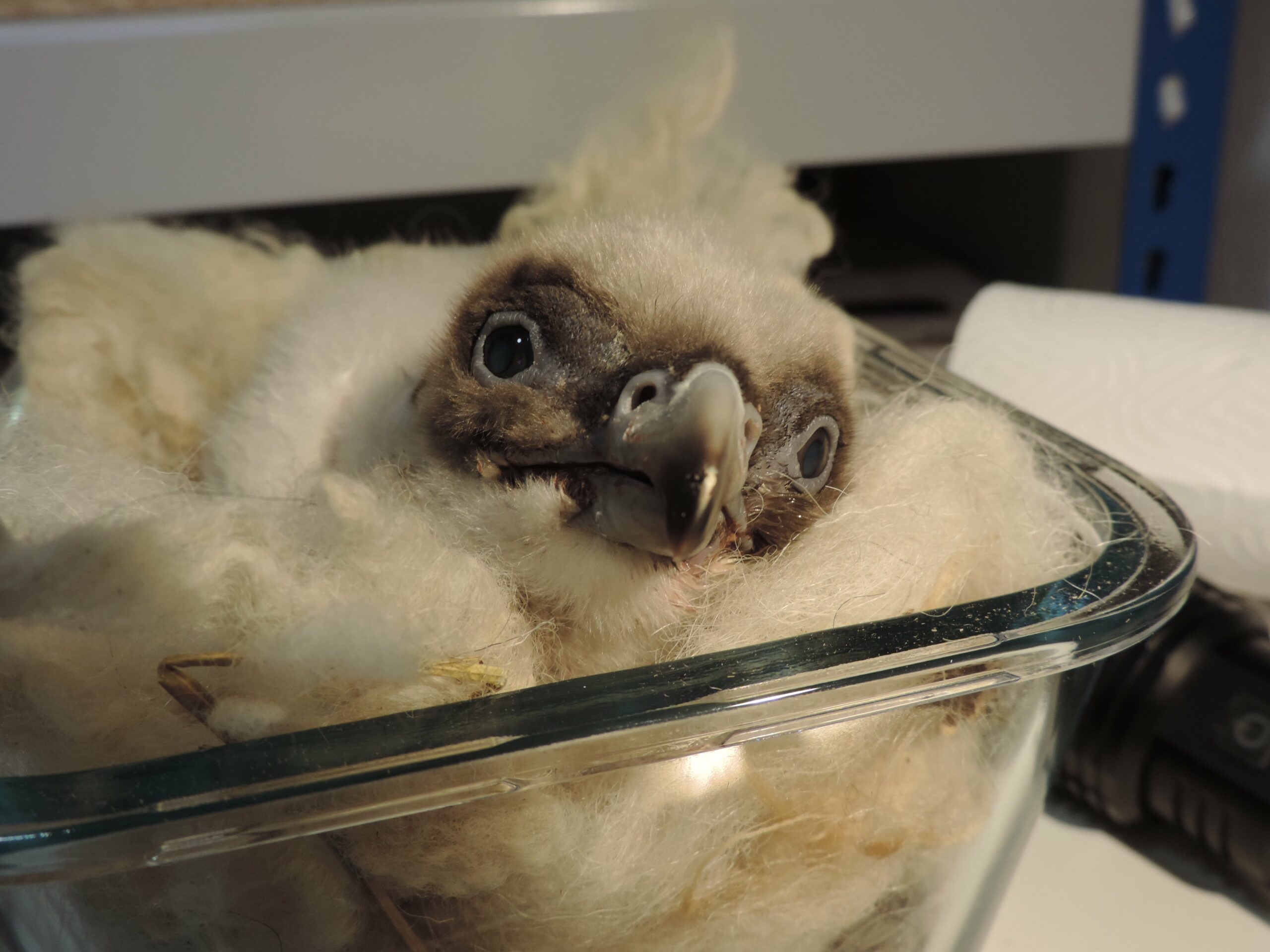
2018 has been the fourth consecutive year with a high and stable production of nestlings inside the Bearded Vulture Captive Breeding Network (EEP)!
The Bearded Vulture European Endangered Species Programme
Since 1978 we have been part of the coordinated effort to reintroduce the Bearded Vulture across its former range in Europe. In 1978, the Bearded Vulture Reintroduction Project started in the Alps based on a captive breeding programme. This Bearded Vulture captive breeding network has been included in the European Endangered Species Programme (EEP). The Bearded Vulture EEP is coordinated by us here at the VCF. It involves a network of zoos, animal parks, captive breeding centres and private collections aiming to breed this species in captivity for conservation purposes.
By the end of December 2018, the EEP included 36 zoos (mainly European), three large (red spots) and two smaller (green spots) specialized captive breeding centres, and two private keepers, keeping a total of 170 birds. The VCF owns 80% of these. From these 170 birds, 77 are males and 91 females with an additional two birds whose sex is still undetermined.
Breeding results
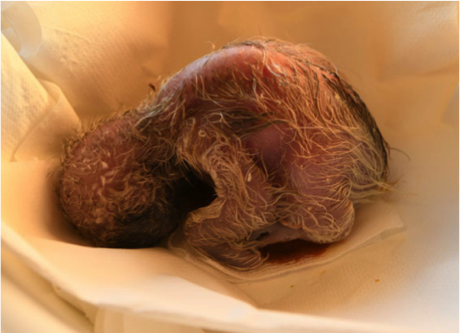
Nestling numbers continued to grow in 2018. In total, 42 Bearded vulture pairs laid 68 eggs, from which 33 hatched and 25 survived. However, out of the 25 nestlings, one chick could not be included in the EEP, and unfortunately, another chick died as a fledgling a few days after abandoning the nest because of an accident. Finally, of the remaining 23 birds, 18 came from the specialized captive breeding centres (20 laying pairs), and five from Zoos (21 laying pairs). Although 23 chicks have been reproduced inside the EEP, only 13 could be released in the wild as part of reintroduction projects and only in 4 out of the 5 ongoing projects (Alps, Andalusia, Baronnies-GypConnect LIFE Project and Maestrazgo). This is because most of the chicks were descendants of not common bloodlines.
Pair management
As part of the management of the birds within the breeding network, one new pair (Centro de Cría Guadalentín) started to reproduce, four new pairs (T. Friedrichsfelde, Prague, Beauval and Belgrade zoos) produced their first clutch and three more pairs (CF Vallcalent, second Prague pair and Poznan zoo) started to mate. In addition, 19 birds have been transferred during 2018, making it possible to establish nine new pairs!
Deaths
Unfortunately, there were five deaths in 2018. Four adult birds (three males and one female) and one juvenile male less than five months old died.
Some firsts
We never stop to learn more from this species. For the first time, we managed to document with photos the evolution of Bearded Vulture embryos. By candling eggs without a pigmented egg-shell, we could determine if an egg is already fertile by six days of incubation. We could observe that the shadow of the yolk doubles its size between the fourth and the sixth incubation day. Additionally, for the first time, new surgeries have been implemented for Bearded Vultures: leg prosthesis and treatment against Morganian cataracts. Although this method is still in the experimental phase, it has been implemented by other bird species with success.
The Bearded Vulture EEP 2018 Annual Repo
Adobe Acrobat Document 3.5 MB

To learn the latest updates of the Bearded Vulture EEP and the conservation of the species in Europe, you can join us at this year’s Annual Bearded Vulture Meeting 2019.
Every year during the Annual Bearded Vulture Meeting, we bring together the people that make up the Bearded Vulture community to discuss and share their work conserving Europe’s rarest vulture.
This time the meeting will take place in Ordino, Andorra between 15 to 17 November. The first two days will be dedicated to presentations, which cover the different regions and aspects of Bearded Vulture conservation in Europe. On the third day of the meeting, participants will head out to the mountains for a field trip to observe Bearded Vultures and other wildlife in nature.
So, join us as we discuss the latest research and conservation of Bearded Vultures across Europe. Registration is open until 1 November.

